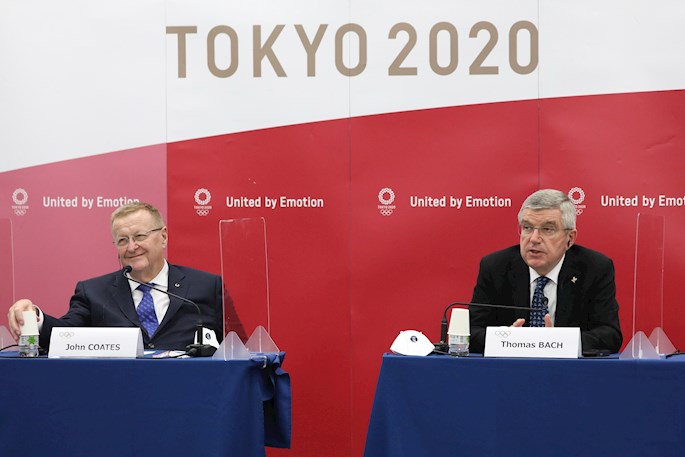Vaccine developments clear path to Tokyo Olympics next summer
Published : 23 Nov 2020, 23:02

Recent developments in coronavirus vaccine production has helped clear a path towards the Tokyo Olympic Games next summer, although many practical questions remain about how the games will go ahead safely.
With several vaccines in the pipeline, optimism is rising within the International Olympic Committee (IOC), who plan to begin the games in eight months.
The "likely availability" of a vaccine for next summer would "greatly facilitate" the Tokyo Games, said IOC President Thomas Bach on Monday during a visit to the Japanese capital, adding that the IOC "will do everything possible" to promote vaccination among athletes and the public ahead of the event.
However, those responsible for the Games are still preparing for a range of scenarios, including the possibility that the vaccine won’t arrive on time, as well as potential difficulties trying to vaccinate some 11,000 athletes and many more spectators in time for the games to begin.
In Tokyo, Bach said it was up to the Japanese authorities to decide whether the vaccine would be compulsory for spectators and athletes on their arrival in Japan.
In any case, all Olympic participants will be encouraged to vaccinate and this idea will be pushed through promotional campaigns, explained the head of the IOC's coordination commission for Tokyo 2020, John Coates, from Australia.
The IOC is also planning to set up a support system for countries with less access to the vaccine, Coates detailed during his recent visit to Tokyo with Bach, in which no further details were given as to how this aid would be implemented.
In parallel to large-scale vaccination, the IOC is considering various safety measures, including frequent coronavirus testing for athletes, social distancing where possible, and to shorten the stay of national teams in the Olympic Village, where organisers hope to establish a coronavirus-free bubble.
Japan was able to test out some of their coronavirus protocols during the artistic gymnastics tournament held in Tokyo on November 8, where 32 athletes participated from four countries.
The tournament was the first international event held in Japan since its borders closed to foreign visitors in April, and among other measures, participants were required to stay in the same hotel and adhere to movement restrictions.
One of the biggest doubts about the Games since their postponement in March is how many spectators will be permitted to attend.
Bach said in Tokyo that "a reasonable number" of spectators are expected in the stadiums, but it is not until next spring that they plan to make a final decision on what capacity will be allowed and how health safety measures will be managed.
Japan has progressively increased the number of spectators allowed in the stadiums since last summer and is expected to continue to do so, although a third wave of infections in November could lead to further restrictions.
Japan still applies harsh restrictions surrounding the entry of foreign visitors to the country, something that is expected to be relaxed for visitors ahead of the games by undergoing pre-and post-flight PCR tests.

